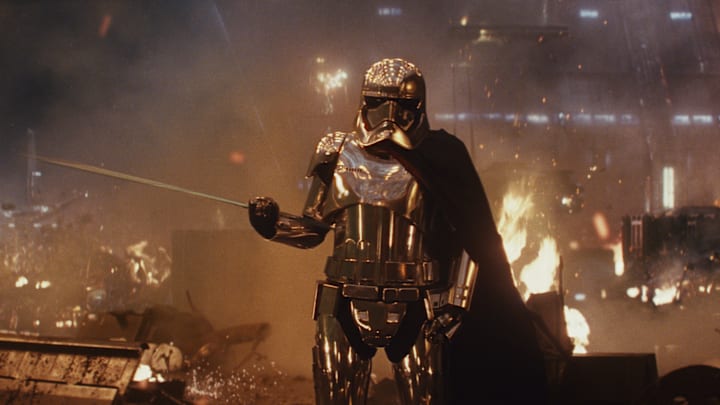When Star Wars fans rank their favorite franchise movies, it's not surprising to see one or more of the Original Trilogy films near the top. More and more audiences are ranking The Last Jedi higher than ever, though -- and that's not much of a surprise, either.
The Rian Johnson-directed film followed up the first in the Sequel Trilogy with a story that felt new and exciting, yet somehow still familiar and comforting. It's such a standout film that it might be the best Star Wars fans have gotten since the Original Trilogy.
In some fan circles, The Last Jedi is still considered the least "Star Wars" of the franchise's many films. It's the movie's insistence on not telling a predictable Star Wars story, however, that makes it different in a good way. In fact, it remains one of the freshest looks at the Skywalker Saga's main themes since the original three films first introduced them.
Luke Skywalker is not the hero everyone expected at the beginning; his Hero's Journey has begun again in The Last Jedi. Rey beats him in a duel. Leia Organa almost dies, and Luke eventually does. No one expected these things to happen in a Star Wars movie. Therein lies the brilliance of it; it's because it did everything no one thought it would dare to do that it remains a masterpiece.
The Last Jedi -- aside from featuring an actual mirror of sorts, almost as if this were intentional -- is a brilliant mirror to the second film in another Star Wars trilogy, The Empire Strikes Back. In each film, the good guys lose the battle, the main trio embarks on separate missions, and a cranky Jedi Master attempts to train a stubborn learner into embracing a deeper understanding of the Force.
Some of these things are flipped around, though -- hence, the mirror. The rebels flee Hoth at the beginning of Empire, while the Resistance escapes Crait at the end of TLJ. The former leaves Yoda to watch his apprentice leave, while in the latter, Yoda actually seeks Luke Skywalker out to teach him one final lesson. There are more examples scattered throughout, but Johnson's mastery of these stories allowed him to play with structure and themes in a way other directors hadn't before.
Over the last several years, larger audiences have been exposed to Johnson's work thanks to the filmmaker's Knives Out films. Even before he dipped into the Star Wars franchise with The Last Jedi, however, Johnson had more than proven his exceptional skills as a storyteller -- skills he then brought to a galaxy far, far away.
As a writer and director, Johnson isn't interested in spoon-feeding information to his viewers. He not only shows without telling, but also manages to do so in an artful, intellectual way. This unique approach to a Star Wars movie showed that Star Wars stories don't necessarily have to check a set of boxes to contribute to and enrich its canon. These stories can fit seamlessly into the universe while approaching its themes and formulas from memorable and revolutionary angles.
More from Dork Side of the Force:
